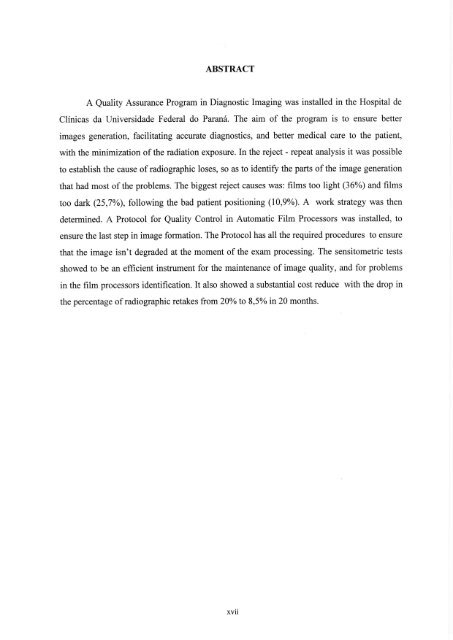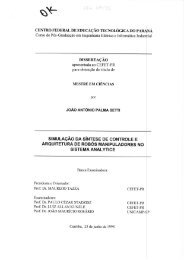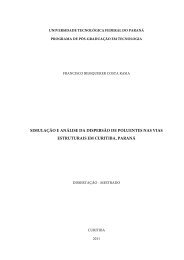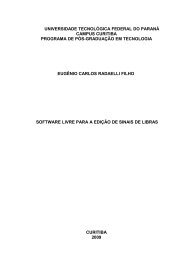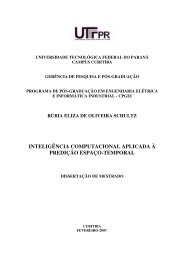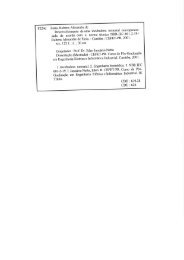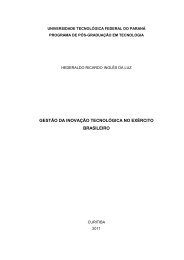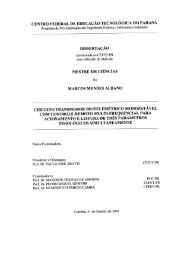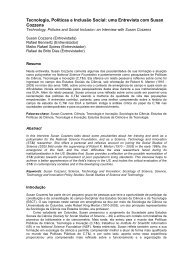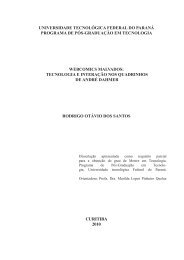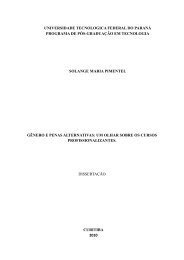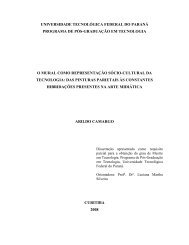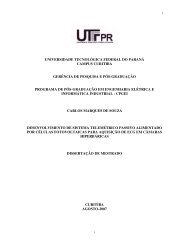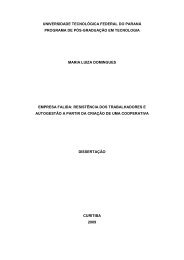Curso de Pos-Graduacao em Engenharia Eletrica e ... - UTFPR
Curso de Pos-Graduacao em Engenharia Eletrica e ... - UTFPR
Curso de Pos-Graduacao em Engenharia Eletrica e ... - UTFPR
You also want an ePaper? Increase the reach of your titles
YUMPU automatically turns print PDFs into web optimized ePapers that Google loves.
ABSTRACT<br />
A Quality Assurance Program in Diagnostic Imaging was installed in the Hospital <strong>de</strong><br />
Clinicas da Universida<strong>de</strong> Fe<strong>de</strong>ral do Parana. The aim of the program is to ensure better<br />
images generation, facilitating accurate diagnostics, and better medical care to the patient,<br />
with the minimization of the radiation exposure. In the reject - repeat analysis it was possible<br />
to establish the cause of radiographic loses, so as to i<strong>de</strong>ntify the parts of the image generation<br />
that had most of the probl<strong>em</strong>s. The biggest reject causes was: films too light (36%) and films<br />
too dark (25,7%), following the bad patient positioning (10,9%). A work strategy was then<br />
<strong>de</strong>termined. A Protocol for Quality Control in Automatic Film Processors was installed, to<br />
ensure the last step in image formation. The Protocol has all the required procedures to ensure<br />
that the image isn't <strong>de</strong>gra<strong>de</strong>d at the moment of the exam processing. The sensitometric tests<br />
showed to be an efficient instrument for the maintenance of image quality, and for probl<strong>em</strong>s<br />
in the film processors i<strong>de</strong>ntification. It also showed a substantial cost reduce with the drop in<br />
the percentage of radiographic retakes from 20% to 8,5% in 20 months.<br />
xvii


